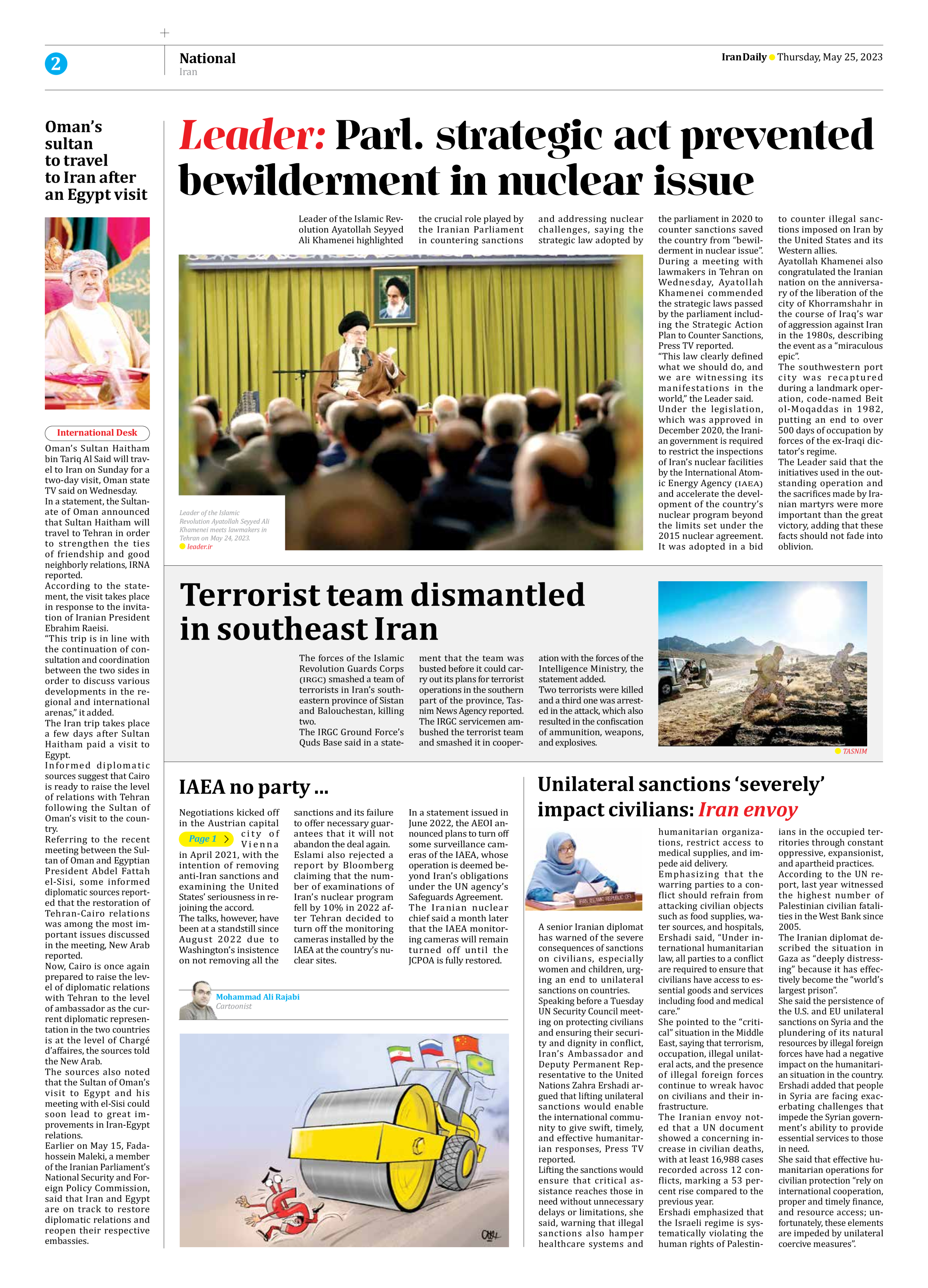
Unilateral sanctions ‘severely’ impact civilians: Iran envoy
A senior Iranian diplomat has warned of the severe consequences of sanctions on civilians, especially women and children, urging an end to unilateral sanctions on countries.
Speaking before a Tuesday UN Security Council meeting on protecting civilians and ensuring their security and dignity in conflict, Iran’s Ambassador and Deputy Permanent Representative to the United Nations Zahra Ershadi argued that lifting unilateral sanctions would enable the international community to give swift, timely, and effective humanitarian responses, Press TV reported.
Lifting the sanctions would ensure that critical assistance reaches those in need without unnecessary delays or limitations, she said, warning that illegal sanctions also hamper healthcare systems and humanitarian organizations, restrict access to medical supplies, and impede aid delivery.
Emphasizing that the warring parties to a conflict should refrain from attacking civilian objects such as food supplies, water sources, and hospitals, Ershadi said, “Under international humanitarian law, all parties to a conflict are required to ensure that civilians have access to essential goods and services including food and medical care.”
She pointed to the “critical” situation in the Middle East, saying that terrorism, occupation, illegal unilateral acts, and the presence of illegal foreign forces continue to wreak havoc on civilians and their infrastructure.
The Iranian envoy noted that a UN document showed a concerning increase in civilian deaths, with at least 16,988 cases recorded across 12 conflicts, marking a 53 percent rise compared to the previous year.
Ershadi emphasized that the Israeli regime is systematically violating the human rights of Palestinians in the occupied territories through constant oppressive, expansionist, and apartheid practices.
According to the UN report, last year witnessed the highest number of Palestinian civilian fatalities in the West Bank since 2005.
The Iranian diplomat described the situation in Gaza as “deeply distressing” because it has effectively become the “world’s largest prison”.
She said the persistence of the U.S. and EU unilateral sanctions on Syria and the plundering of its natural resources by illegal foreign forces have had a negative impact on the humanitarian situation in the country.
Ershadi added that people in Syria are facing exacerbating challenges that impede the Syrian government’s ability to provide essential services to those in need.
She said that effective humanitarian operations for civilian protection “rely on international cooperation, proper and timely finance, and resource access; unfortunately, these elements are impeded by unilateral coercive measures”.







